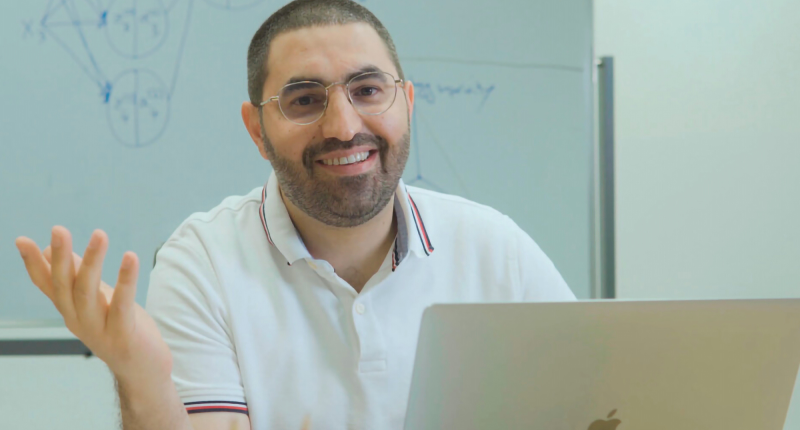Opinions expressed by Entrepreneur contributors are their own.
You’re reading Entrepreneur Middle East, an international franchise of Entrepreneur Media.
Digital health technologies are designed to empower patients with data-driven insights into their health. The influx of everyday medical monitoring devices and wearables such as smart watches, Fitbits, and continuous glucose monitors, coupled with the increasing prevalence of chronic diseases and consumer’s growing comfort with telemedicine, are all significant drivers propelling the demand for self-diagnosis platforms. These new healthtech platforms and devices are simple and easy to use- individuals can easily enter their symptoms, and receive potential diagnoses, all backed by robust AI algorithms.
Furthermore, digital health is often more affordable and significantly more scalable than brick-and-mortar healthcare. It can reach more people than face-to-face care, and it often delivers more timely diagnosis due to its ability to be used anytime, anywhere. It also removes the headache of travel times, as well as the resulting environmental impacts. Self-diagnosis tools like Avey are especially a gamechanger for patients in remote areas or those with limited access to healthcare.
Digital diagnosis systems use artificial intelligence and machine learning (AI/ML) to analyze user’s symptoms and compare them against a massive database of medical data and knowledge, which often includes millions of peer-reviewed medical cases. Such a process enables the platform to provide a potential diagnosis that aligns with the information provided by the user from the comfort of their home. These systems also offer the advantage of immediate feedback, an important feature considering that early diagnosis can often make a significant difference in treatment outcomes. Moreover, the ability to triage symptoms can alleviate pressure on healthcare systems, particularly in times of crisis such as the COVID-19 pandemic.
 Source: Avey
Source: Avey
The pandemic has also dramatically increased the utilization of self-diagnostics, familiarizing the wider-population with at-home self-diagnostic kits. It’s believed that post-pandemic consumers will continue to see diagnostic healthtech products and solutions as an increasingly viable preventative investment for their overall well-being, helping to lead the shift towards personalized preventative healthcare, over treatment-focused healthcare. According to McKinsey & Company, the potential global market for digital self-diagnosis technologies could reach US$50 billion by 2025, driven by increasing technological advancements, growing consumer interest in personalized health, and the worldwide increase in smartphone usage. Since 2010, over 200 new enterprises have emerged, each creating innovative applications for healthcare. Around 40% of these applications are designed for direct health interventions or prognostic abilities, which signifies a substantial shift in the landscape of health data applications from when it was primarily concentrated on analyzing past data to managing the analysis of current data.
AVEY’S AI SELF-DIAGNOSIS PLATFORM
We spoke with Avey founder Mohammad Hammoud to understand how the company came to be. “It all began when my son fell ill with a serious chronic illness,” he recounts. A true testament to how adversity can fuel innovation, Hammoud’s challenges with the healthcare system sparked a radical idea: why not use technology, specifically AI, to eliminate healthcare’s shortcomings and inequalities? As an Associate Professor at Carnegie Mellon University with an extensive background in computer science, he recognized that he might be uniquely suited to solve for the current challenges. After all, his current research focuses on designing and building scalable distributed systems for artificial intelligence, information retrieval, and graph mining applications. “Just as smartphones connected millions of people to the internet, a similar transformation could occur in the accessibility and quality of healthcare,” he says. And thus, Avey was born on a mission to empower individuals worldwide with a free, anytime-anywhere self-diagnosis tool.
 Mohammad Hammoud, founder, Avey. Source: Avey
Mohammad Hammoud, founder, Avey. Source: Avey
Related: The Shazam Of Heartbeats: Here’s How Eko Health Helps Bridge Gaps In Cardiac Care
The journey, of course, came with its challenges. For starters, the expert team assembled to create Avey’s initial medical diagnostic algorithm took 3.5 years of relentless effort. Yet, every hurdle only reinforced their belief in the mission. “There were moments of doubt and obstacles along the way, but our unwavering belief and conviction to the mission drove our determination,” Hammoud shares. Now, Avey is reshaping how individuals approach their health with a holistic, personalized strategy tailored to each user’s unique needs. “In today’s healthcare landscape, individuals often face fragmented healthcare experiences,” Hammoud says, emphasizing the solution Avey brings to the table. This revolutionary service leverages advanced AI models to address healthcare’s inefficiencies, paving the way for a seamless selfdiagnosis experience.
Avey’s AI medical diagnostic algorithm replaces the need for self-diagnosis via search engines by offering a reliable, accurate alternative. In fact, the inclination towards self-diagnosis has been deeply ingrained in people for decades, if not centuries, and is more popular than video consultations. The algorithm’s remarkable precision ensures a dependable health assessment, making the journey of self-diagnosis a well-guided, autonomous one. Since establishing itself in 2017, Avey’s platform has reached 80% coverage of today’s most common diseases. Today, the app has been downloaded over 1.1 million times across 175 countries, and it has a 93% accuracy rate for diagnosis. And the accuracy rate is continuously improving. With a dedicated team working around the clock to update the platform based on user feedback and evolving healthcare trends, Avey stands at the forefront of healthtech as it consistently outperforms the industry standard.
Although the AI diagnostic tool is available worldwide, Avey has currently honed its focus on the Qatar market for partnerships with medical institutions, doctors, and pharmacies. The Avey team says they already have plans to expand their partnerships to the UAE, Kuwait, USA, and Canada. Today, Avey has been successful in diagnosing patients with remarkable accuracy, covering over 480 illnesses learned by the AI. They have successful partnerships with 35 healthcare providers, and over 4,000 telemedicine consultation bookings, showcasing the platform’s effectiveness. Avey’s entrepreneurial journey has also seen them successfully raise US$4.71 million; comprised of a $1.45 million pre-seed and a $3.26 million seed round. Now, they are setting their sights on their Series A funding round, aiming to attract both local and international investors. Afterall, a significant part of their future roadmap includes expanding into the US healthcare market and establishing more strategic partnerships globally.
 Source: Avey
Source: Avey
Despite the crowded healthtech space, Avey has still managed to stand out. Hammoud attributes its success to the platform’s unparalleled and improving accuracy as well as its strong commitment to create a healthcare ecosystem that transcends geographical boundaries. “We aim to connect users with the best healthcare professionals, regardless of their location,” he explains, highlighting their global approach. However, the healthtech industry as a whole still faces significant challenges, such as limited access to quality healthcare, escalating healthcare costs, and health disparities among different populations. Recognizing these challenges, Avey is committed to leveraging AI technology to enhance access, affordability, and the quality of care, one step and one algorithm adjustment at a time.
According to Hammoud, he and his team are aiming “to create the world’s largest hospital that transcends geographical boundaries,” and “our goal is to connect users with the best healthcare professionals, regardless of their location.” Hammoud’s mantra is to focus on customer centricity, with other key tips to other budding entrepreneurs in the region being to establish a strong culture, embrace resilience and build a strong network. The future of digital health tech thus looks especially promising today as the integration of AI into healthcare is poised to transform patient experience, improve diagnostic accuracy, and create a more efficient health system. As we continue to navigate the global health landscape, digital health tech’s role will undoubtedly become more integral, proving to be more than just a wave, but rather, a seismic shift in how we perceive and manage our health.
To read more about the transformative innovation of digital health in 2023, read the full report here.
This article was originally published on Lucidity Insights, a partner of Entrepreneur Middle East in developing special reports on the Middle East and Africa’s tech and entrepreneurial ecosystems.
This article is from Entrepreneur.com









